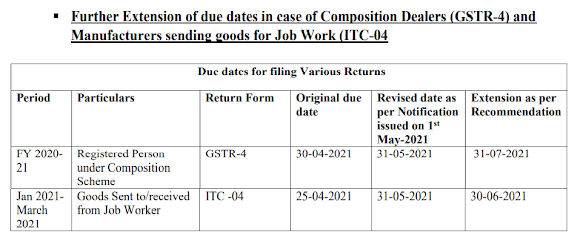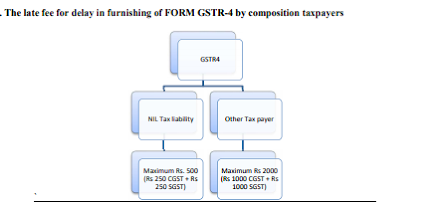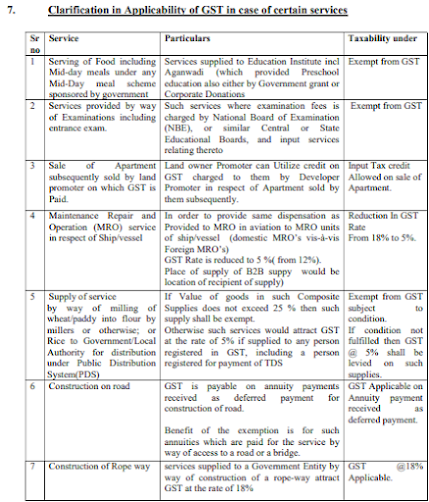Case Law Details
Case Name : South Indian Bank Limited Vs CIT (Supreme Court of India)
Appeal Number :
Date of Judgement/Order :
Related Assessment Year :
Land Mark Supreme Court Judgement: No disallowance u/s 14A of the Income Tax Act, 1961
Case Name: South Indian Bank Limited Vs CIT (Supreme Court of India)
Appeal No: Civil Appeal No. 9606 of 2011
Date of judgement/order: 09.09.2021
Court: Supreme Court of India
In the landmark judgement the Hon’ble Supreme Court of India allowed the appeal of the South Indian Bank by settling the long drawn battle between the assessee and the department on whether proportionate disallowance of interest paid by the banks is called for under section 14A of the Income Tax Act for investments made in tax free bonds/securities which yield tax free dividend and interest of assesse Banks when assesse had sufficient interest free own fund which were more than the investments made.
The Supreme Court held that where the Assessee has mixed fund (made up partly of interest free funds and partly of interest bearing funds) and payment is made out of that mixed fund, the investment must be considered to have been made of the interest free fund, ie; in respect of payment made out of mixed fund, it is the assesse who has such right of appropriation and also the right to assert from what part the fund a particular investment is made and it is not permissible for the Revenue to make estimation of a proportionate figure.
South Indian Bank Limited are scheduled banks and in the course of their banking business, they also engage in the business of investments in bonds, securities and shares which earn the assesses, interest from such securities and bonds as also dividend income on investments in shares of companies and from units of UTI etc, which are tax free in nature.
Chapter IV of the Act, provides for the Heads of Income for computation of Total Income. In section 14, the various income are classified under salaries, Income from house property, Profits & Gains of business or profession, Capital Gains & Income from other sources. The Section 14A relates to expenditure incurred in relation to income which are not includable in Total Income and which are exempted from tax. No taxes are therefore levied on such exempted income. The Section 14A had been incorporated in the Income Tax Act to ensure that expenditure incurred in generating such tax exempted income is not allowed as a deduction while calculating total income for the concerned assessee.
Section 14A was introduced to the Income Tax Act by the Finance Act, 2001 with retrospective effect from 01.04.1962. Page 3 of 22 The new section was inserted in aftermath of judgment of this Court in the case of Rajasthan State Warehousing Corporation Vs. CIT1. The said Section provided for disallowance of expenditure incurred by the assessee in relation to income, which does not form part of their total income. As such if the assessee incurs any expenditure for earning tax free income such as interest paid for funds borrowed, for investment in any business which earns tax free income, the assessee is disentitled to deduction of such interest or other expenditure. Although the provision was introduced retrospectively from 01.04.1962, the retrospective effect was neutralized by a proviso later introduced by the Finance Act, 2002 with effect from 11.05.2001 where under, re-assessment, rectification of assessment was prohibited for any assessment year, up-to the assessment year 2000-2001, when the proviso was introduced, without making any disallowance under Section 14A. The earlier assessments were therefore permitted to attain finality. As such the disallowance under Section 14A was intended to cover pending assessments and for the assessment years commencing from 2001-2002.
It may be noted that in the present batch of appeals, we are concerned with disallowances made under Section 14A for assessment years commencing from 2001-2002 onwards or for pending assessments.
At outset it is clarified that none of the assessee banks amongst the appellants, maintained separate accounts for the investments made in bonds, securities and shares wherefrom the tax-free income is earned so that disallowances could be limited to the actual expenditure incurred by the assessee. In other words, the expenditure incurred towards interest paid on funds borrowed such as deposits utilized for investments in securities, bonds and shares which yielded the tax-free income, cannot conveniently be related to a separate account, maintained for the purpose. The situation is same so far as overheads and other administrative expenditure of the assessee.
In absence of separate accounts for investment which earned tax free income, the Assessing Officer made proportionate disallowance of interest attributable to the funds invested to earn tax free income. The assessees in these appeals had earned substantial tax-free income by way of interest from tax free bonds and dividend income which also is tax free. It is manifest that substantial Page expenditure is incurred for earning tax free income. Since actual expenditure figures are not available for making disallowance under Section 14A, the Assessing Officer worked out proportionate disallowance by referring to the average cost of deposit for the relevant year. The CIT (A) had concurred with the view taken by the Assessing Officer. 9. The ITAT in Assessee’s appeal against CIT(A) considered the absence of separate identifiable funds utilized by assessee for making investments in tax free bonds and shares but found that assessee bank is having indivisible business and considering their nature of business, the investments made in tax free bonds and in shares would therefore be in nature of stock in trade. The ITAT then noticed that assessee bank is having surplus funds and reserves from which investments can be made. Accordingly, it accepted the assessee’s case that investments were not made out of interest or cost bearing funds alone. In consequence, it was held by the ITAT that disallowance under Section 14A is not warranted, in absence of clear identity of funds.
The decision of the ITAT was reversed by the High Court by acceptance of the contentions advanced by the Revenue in their appeal and accordingly the Assessee Bank is before us to challenge the High Court’s decision which was against the assessee.
The question before the Hon’ble Supreme Court was whether Section 14A enables the Department to make disallowance on expenditure incurred for earning tax free income in cases where assessees like the present appellant, do not maintain separate accounts for the investments and other expenditures incurred for earning the tax-free income.
The Hon’ble Supreme Court considered pleathora of decisions including the case of CIT vs Reliance Industries (410 ITR 466), Maxopp Investments Limited vs CIT (2018) (15 SCC 5239) (SC).
The Apex court laid emphasis on the fact that the law does not require separate accounts to be maintained for the earning of exempt and non- exempt income and thus the argument of the department on these lines are brushed aside.
The Apex court further held that the cited judgments advise this Court to conclude that the proportionate disallowance of interest is not warranted, under Section 14A of Income Tax Act for investments made in tax free bonds/ securities which yield tax free dividend and interest to Assessee Banks in those situations where, interest free own funds available with the Assessee, exceeded their investments. With this conclusion, we unhesitatingly agree with the view taken by the learned ITAT favouring the assessees. The above conclusion is reached because nexus has not been established between expenditure disallowed and earning of exempt income. The respondents as earlier noted, have failed to substantiate their argument that assessee was required to maintain separate accounts. Their reliance on Honda Siel (Supra) to project such an obligation on the assessee, is already negated. The learned counsel for the revenue has failed to refer to any statutory provision which obligate the assessee to maintain separate accounts which might justify proportionate disallowance.
In the above context, the following saying of Adam Smith in his seminal work – The Wealth of Nations may aptly be quoted: “The tax which each individual is bound to pay ought to be certain and not arbitrary. The time of payment, the manner of payment, the quantity to be paid ought all to be clear and plain to the contributor and to every other person.” Echoing what was said by the 18th century economist, it needs to be observed here that in taxation regime, there is no room for presumption and nothing can be taken to be implied. The tax an individual or a corporate is required to pay, is a matter of planning for a tax payer and the Government should endeavour to keep it convenient and simple to achieve maximization of compliance. Just as the Government does not wish for avoidance of tax equally it is the responsibility of the regime to design a tax system for which a subject can budget and plan. If proper balance is achieved between these, unnecessary litigation can be avoided without compromising on generation of revenue.
In view of the forgoing discussion, the issue framed in these appeals is answered against the Revenue and in favour of the assessee. The appeals by the Assessees are accordingly allowed with no order on costs.
This judgement will put an end to lot of disputes revolving around Section 14A of the Act


















